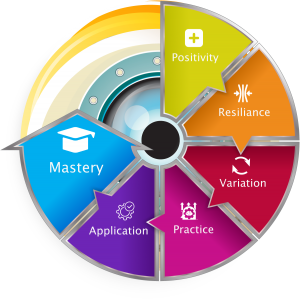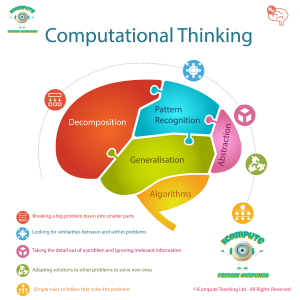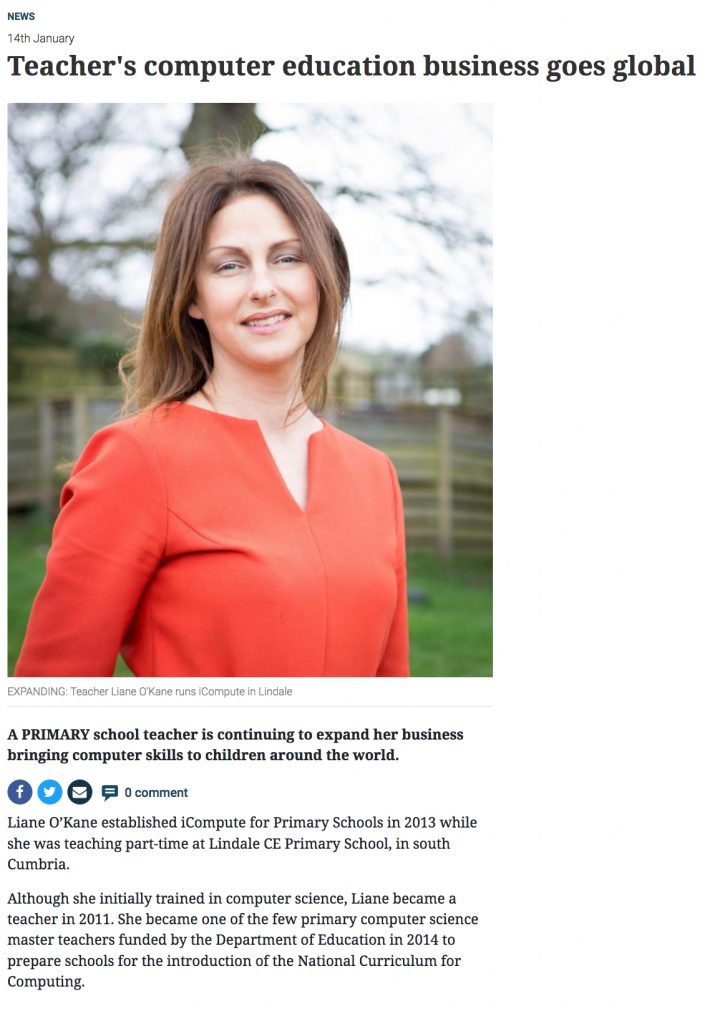Achieving Computing Mastery

Computing Mastery
Mastery in computing means acquiring a deep, long-term, secure and adaptable understanding of the subject. It is demonstrated by how skillfully a child can apply their learning in computing to new situations in unfamiliar contexts.
A positive teacher mindset and strong subject knowledge are key to student success in computing. iCompute aims to enhance students’ enjoyment, resilience, understanding and attainment in computing by empowering and equipping schools to deliver a world-class computing education with comprehensive computing schemes of work that are designed for computing mastery.
Our Principles for Mastery
Success
Every child can enjoy and succeed in computing when offered appropriate learning opportunities. iCompute uses growth mindset and problem-solving approaches that enable pupils to develop resilience, persistence and confidence. All children are encouraged to believe in their ability to master computing and are empowered to succeed through curiosity, tinkering and perseverance.
Depth
Pupils are taught through whole-class interactive teaching with pupils working together on the same lesson content at the same time. Concepts are developed in logical steps with particular attention given to fundamental concepts. This ensures that all children can master concepts before moving to the next stage, with no pupil left behind.
Pupils are given the time and opportunity to fully understand, explore and apply skills and ideas in different ways, in different situations and in different subjects. This enables pupils to fully grasp a concept and understand the relevance of their learning.
Computational Thinking
Developing computational thinking lies at the heart of the National Curriculum for Computing and involves learning how people solve problems; changing what looks like a difficult task into a simple one that we know how to deal with.
It involves taking a problem and breaking it down into a series of smaller, more manageable parts (decomposition). Each part can then be looked at individually, considering similarities between and within other problems (pattern recognition), and focusing only on the important details whilst ignoring irrelevant information (abstraction). Next, looking for solutions to other problems and adapting them to solve new problems (generalisation). Then, simple steps or rules to solve each of the smaller problems can be designed (algorithms). Once we have a working solution, we then use (evaluation) to analyse it and ask – Is it any good ? Can it be improved? How?

Computational Thinking
Computational thinking is developed by embedding these skills into all of our lessons, through teacher modelling and with targeted questioning.
Unplugged Activities
The judicious use of activities away from devices and computers (unplugged) are crucial to young children’s learning in computing. Our unplugged activities are physical in nature and provide kinaesthetic experiences which help pupils understand abstract concepts and deepen learning. Having activities away from computers is effective as children know that computers are a tool in their learning, rather than the subject itself. Stepping away from computers enables them to think about concepts and teachers can convey fundamentals that are independent of particular software or technology.
What children learn in the unplugged context must be applied to another (plugged: using technology) which supports our other principles of mastery: success and depth.
Find out more about computing pedagogy for mastery by reading this blog post – https://www.icompute-uk.com/news/computing-pedagogy/ and more about our primary computing schemes of work by visiting www.icompute-uk.com







Teacher’s computing education business goes global
Liane O’Kane established iCompute for Primary Schools in 2013 while she was teaching part-time in Cumbria.
Although she initially trained in computer science, Liane became a teacher in 2011. She became one of the few primary computer science master teachers funded by the Department of Education in 2014 to prepare schools for the introduction of the National Curriculum for Computing.
Liane also saw the opportunity to develop a business to help teachers fulfil the curriculum.
She used her lesson plans as a base to create schemes of work which schools could buy in and use to teach students from nursery through to Year Six.
iCompute now produces schemes of work which are used by thousands of schools in the UK, as well as overseas.
Most recently the Ministry of Education on the Cayman Islands, in the Caribbean, has taken on the resources produced by iCompute. Liane expects to travel to the islands to assist with the rollout in its schools later this year.
“I have had the benefit of studying computing at GCSE and then degree level and then working in industry,” said Liane.
“It’s about understanding what the National Curriculum is and what the objectives need be in each key stage. It’s about making it fun for the pupils and easy to teach for the teachers.”
She said the schemes of work included practical, active ways of teaching youngsters the concepts behind computing – for example, pretending to be the ‘spiders’ and ‘crawlers’ in a search engine – rather than hours sat in front of a screen.
The resources are entirely digital, which means Liane can make constant updates to keep step with changing technology.
“It is constantly evolving and I think that’s unique,” said Liane.